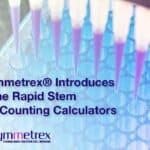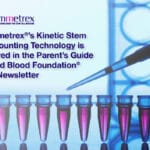On March 8-9 in Boston, stem cell medicine biotechnology start-up Asymmetrex led attendees at the 6th Annual Clinical Trials Supply New England 2017 conference in discussions about the need for quality controls for the supply of tissue stem cells used for treatments in either FDA-approved clinical trials or unregulated private stem cell clinics. Though these two stem cell treatment settings are often contrasted regarding their safety and effectiveness, Asymmetrex stressed that patient care and research progress is compromised in both because of the lack of essential quality control tests for the number and quality of transplanted tissue stem cells.
At the 6th Annual Clinical Trials Supply New England 2017 conference, held in Boston from March 8-9, James Sherley, M.D., Ph.D., director of Asymmetrex, led discussions that evaluated the quality of U.S. supplies of stem cells used in clinical trials compared to private stem cell clinics. Private stem cell clinics have been criticized for not employing research standards that are necessary to establish the therapeutic effectiveness of treatments with statistical confidence. In part because of this difference in practice, they are also often accused of making unproven claims about the effectiveness of their therapies.
Sherley presented comparisons of key operational elements to argue that, given good intent in both settings, the two different settings of stem cell treatments had both distinct and shared shortcomings. He noted, however, that the most significant shortcoming, which stem cell clinical trials and private stem cell clinics share, was perennially overlooked.
Based on the number of reported stem cell clinical trials and private stem cell clinics, Sherley estimated that close to a quarter-million patients in the U.S. now receive stem cell treatments each year. Though many of these occur within FDA-approved clinical trials, their number is dwarfed nearly 10 times by the number of treatments that occur in private stem cell clinics. It shocked the audience of clinical trial suppliers to learn that there was no stem cell quality control test performed for any of these many treatments.
Even for approved stem cell medicine treatments like bone marrow transplantation and umbilical cord blood transplant, there is no stem cell-specific quality control test available. Counts of total cells are made, but these do not adequately predict stem cell number or function. Biomarkers designated for tissue stem cells are also expressed by stem cells’ more abundant non-stem cell products. So, the biomarkers lack sufficient specificity to be used to count and monitor tissue stem cell function.
Without a quality control test for tissue stem cell number, stem cell treatments in all settings proceed without knowing the dose of treating tissue stem cells. This previously unavoidable therapeutic blind spot creates an instant treatment risk. It also precludes effective analyses to optimize treatment procedures, to compare different treatments, or to relate treatment outcomes to tissue stem cell dose. Without knowing stem cell dose, the interpretation of any stem cell treatment in terms of stem cells as the responsible agents is compromised.
In this context, Sherley announced briefly to attendees that Asymmetrex’s new AlphaSTEM Test for counting adult tissue stem cells and providing data on their viability and tissue cell renewal function represented the needed first quality control test for tissue stem cell treatments, whether in clinical trials, in private stem cell clinics, or approved therapies. In particular, he indicated that both stem cell treatment patients and progress in stem cell medicine would benefit from existing clinical trial supply companies developing into future private stem cell clinic supply companies to ensure the quality of stem cell treatment preparations. Sherley said that, of course, their partnership with Asymmetrex to implement its new stem cell-specific quality control test was an all around best solution for accelerating progress in stem cell transplantation medicine.
Asymmetrex, LLC is a Massachusetts life sciences company with a focus on developing technologies to advance stem cell medicine. Asymmetrex’s founder and director, James L. Sherley, M.D., Ph.D. is an internationally recognized expert on the unique properties of adult tissue stem cells. The company’s patent portfolio contains biotechnologies that solve the two main technical problems – production and quantification – that have stood in the way of successful commercialization of human adult tissue stem cells for regenerative medicine and drug development. In addition, the portfolio includes novel technologies for isolating cancer stem cells and producing induced pluripotent stem cells for disease research purposes. Currently, Asymmetrex’s focus is employing its technological advantages to develop and market facile methods for monitoring adult stem cell number and function in stem cell transplantation treatments and in pre-clinical assays for drug safety.







Leave a Reply